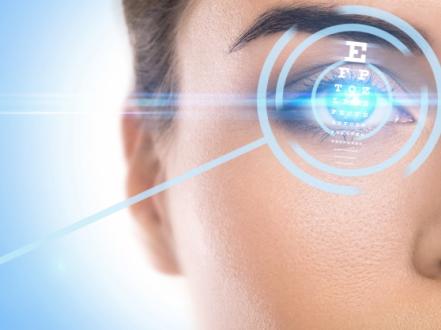Without a healthy and clear vision, it is impossible to fully function and interact with the surrounding world. Even minor refractive errors limit and force the eyes to strain in order to see something. It is unfortunate that in recent years there has been a steady trend towards an increase in the number of people with vision problems. Most people do not pay the necessary amount of attention to the first signs that can transform into more serious problems. Such problems can lead to uncomfortable feelings and even problems that cannot be prevented.
In order to avoid potential issues, you need to have good eye care. It is important to understand the correct steps to healthy vision and not neglect them. By choosing the right methods, you can not only return comfort to your life but also not be affected by age changes or other triggers.
When should I schedule an eye exam?
You may think that your eyes are in a good condition. However, sometimes a person does not realize that one can see better until a professional notices the problem. In addition, some diseases that can lead to vision loss do not have specific symptoms in the early stages. These include glaucoma, diabetic retinopathy, and others.
A comprehensive eye examination with dilated pupils, which can only be performed by a professional, will help to detect any issue as early as possible. It is the main step in your plan for good eye care.
How often to see an expert depends on your age and health. For example, if you are an adult woman or man aged 18-39 and have vision problems, preventive examinations are recommended every 2 years (unless the doctor has advised more often in your particular case).
Learn your family history of vision problems
Your family's medical history can be the real key to keeping you healthy. Knowing what eye problems your loved ones have faced allows doctors to identify potential risks early and take the necessary measures to prevent or treat them. If there have been cases of eye diseases in the family, this may indicate a genetic predisposition to such diseases. By telling your doctor about such cases, you will help form a more accurate picture of your health and focus on the most important aspects of prevention. This is especially important because many eye diseases can develop gradually and be imperceptible in the early stages. Knowing about your family history allows your doctor to prescribe the necessary examinations, detect diseases in the early stages, and provide you with good eye care.
How can I reduce eye strain from screens: organize workspace smartly
Poor organization of the workplace is a trigger of poor health. Improper lighting, uncomfortable furniture placement, and other factors can cause a number of problems. Thus, one can experience eye strain, headache, back and neck pain. If the lighting in the workplace is uneven or too bright, visual strain can occur, and, as a result, rapid eye fatigue and impaired vision will cause discomfort. The correct combination of general and local lighting, for example, the use of a table lamp, will help create comfortable working conditions and avoid these problems.
Another trigger is an incorrect chair or table height, which can cause poor posture. It, in turn, leads to chronic back and neck pain. The workplace should be organized in such a way that you can maintain the correct posture throughout the working day. This means that your feet should be on the floor and your hands should be at the level of the keyboard or work surface.
It is also important to pay attention to the ergonomics of your workplace. The use of ergonomic furniture and equipment will help reduce the risk of developing such diseases as carpal tunnel syndrome, which occurs due to the incorrect position of the hands when working at the computer.
The correct organization of the workplace not only improves comfort and productivity but also contributes to general health, reducing the risk of developing various diseases.
Gymnastics for the eyes
There are many effective eye health-care exercises for the eyes. They aid in relieving tension and stimulating blood supply. The process of restoring vision with the help of gymnastics is quite long and requires perseverance, but the result is worth the effort. In this way, it is possible not only to stop the degradation of vision but also to strengthen it.
Take breaks while working at the computer
Looking at a computer or phone screen for too long can cause:
- Eye strain
- Blurred vision
- Problems with focusing at a distance
- Dry eyes
- Headaches
- Pain in the neck, back and shoulders
To protect your eyes:
- Ask your doctor to check if your glasses or contact lenses are suitable for viewing on a computer screen.
- If eye strain persists, consult your doctor about computer glasses.
- Move the screen so that your eyes are level with the top of the monitor, 60 cm away at a 90-degree angle.
- Try to avoid glare from windows and light. If necessary, use an anti-glare screen and adjust the sun's rays to the screen with curtains.
- Choose a comfortable chair with support. Place it so that your feet are flat on the floor.
- It is also worth paying attention to tables with height adjustment so that your position remains as correct as possible.
- If your eyes are dry, blink more, or try using artificial tears.
Create relaxing sessions
Let's remember how often we rest our eyes. Our eyes endure a huge load every day, as most of us cannot imagine the day without working at a computer, reading, and watching smartphones and TV screens. It is vital to remember that the eyes also need a break. Imagine that your eyes are muscles that need to be trained and relaxed. Without rest, they can get tired. It leads to reduced vision, headaches, and even stress.
You can imagine rest for the eyes as small vacations during the day. Take a few minutes to close your eyes, dream about something pleasant, or just look out the window at nature. It will calm both your mind and your eyes. Such rest will not only preserve your eyesight but also add energy and improve your mood.
What nutrients are important
There is no magic product that can cure an existing eye problem. However, a nutritious diet improves all bodily processes, including eye health. Consume adequate protein, complex carbs, veggies, and fruits. Green vegetables, such as spinach or kale, are particularly beneficial to the eyes. Don’t forget about tuna, salmon, and other omega-3-rich seafood.
Do not disregard sunglasses
Wearing glasses is not just about fashion. It is pegged vital for eye protection. They perform the role of the shield against dangerous UV light. Thus, the chances of having cataracts, macular degeneration, and other eye problems are lower. Furthermore, without sunglasses, our eyes can become tired and strained on a sunny day. Well-selected glasses ensure comfort and safety. It is an investment in your eye's health.
Give up smoking: it harms not only your lungs but also your eyes
Research has linked smoking to higher risks of certain eye diseases. For example, the already mentioned cataracts or damage to the optic nerve, etc.
Healthy sleep is vital
Night sleep should last at least 8 hours in a row. During this time, the eyes rest, and the body starts restorative processes. Ophthalmologists recommend going to bed no later than 11 p.m.
How you ensure good eye health care depends only on you. Remember that to get the desired result, it is important to combine several methods, for example, add fish to your diet several times a week, choose several exercises for the eyes, and make an appointment for an examination. Having a good sleep, but at the same time working continuously in front of the computer will not be enough, as rest sessions are of paramount importance.
As you can see, some small gradual changes to your lifestyle can promote vision and well-being and ensure that you enjoy the beauty of the world through healthy eyes — one of the important senses of perception.






